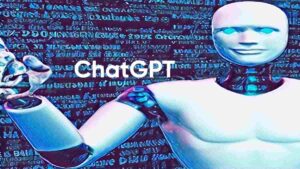Some facts about AI (Artificial Intelligence)
AI (Artificial Intelligence) is a phenomenon that has piqued the interest of people from all walks of life and at all times. In their myths and philosophy, the ancient Greeks and Egyptians depicted machines and artificial entities with human-like qualities, especially in terms of thought, reasoning, and intellect.
Artificial intelligence (AI) is a branch of computer science that studies and designs intelligent machines. The word “artificial intelligence” also referred to as AI was coined at a Dartmouth conference in 1956 by John McCarthy, who described it as the science of constructing intelligent machines.
Along with the advent of electronic computers in the 1940s, a domain and philosophy known as AI (artificial intelligence) emerged, which was concerned with the creation of intelligent machines that resembled humans, or more specifically, had qualities similar to those of a human being.
AI is associated with a wide range of disciplines. When it comes to artificial intelligence, fields of knowledge such as mathematics, psychology, philosophy, logic, engineering, social sciences, cognitive sciences, and computer science are highly important and strongly interrelated. All of these fields and sciences contribute to the creation of intelligent machines with human-like characteristics.
Robotics, Soft Computing, Learning Systems, Planning, Knowledge Representation and Reasoning, Logic Programming, Natural Language Processing, Image Recognition, Image Understanding, Computer Vision, Scheduling, Expert Systems, and many more are examples of AI applications.
Since 1956, the field of AI has seen rapid and spectacular development, with researchers achieving great success in creating intelligent machines capable of doing some of what humans can do.
Clearly, researchers have faced and continue to face challenges in simulating human intelligence. An intelligent computer must possess a number of characteristics and adhere to a set of guidelines. For example, a human being can solve a problem more quickly by relying on intuitive judgments rather than conscious judgments.
You might also be interested to read about : AI(Artificial Intelligence) : A brief Introduction
The knowledge representation, which refers to the information about the world that smart machines must have in order to solve difficulties such as determination of categories of objects, properties of objects, co-relation between objects, relations such as those between causes and effects, conditions, situations, and so on, is another area that researchers have looked into extensively.
Another challenge for AI researchers is that intelligent machines must be able to plan problems to be solved, set a number of goals to be achieved, make decisions and predict actions, learn, understand human languages and emotions, and understand and predict human behavior.
AI is a complex and vast area of study that raises a lot of questions and sparks a lot of debates, but it also solves a lot of problems that technology and industry are facing today and can provide a lot of answers in the future.
To read more on latest technology related articles and news, please do follow : www.technologyinsight.tech







